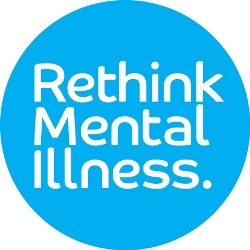I’m pleased to share this new review of my book written by Sandeep Gautam on his blog, The Mouse Trap:
Book review: A Lethal Inheritance
Today, i.e. 15th may 2013 is being celebrated asa mental health blog day by APA and in the spirit of the day I am posting a review of ‘A Lethal Inheritance’ by Victoria Costello. It is a book chronicling how ‘ a mother uncovers the science behind three generations of mental illness‘ and is an apt topic for the day highlighting the importance of public education and discourse about the topic of mental health. this blog pots and book review is a homage to all the people who silently suffer from mental illness, most of the time undiagnosed, or even after diagnosis kept under warps due to associated stigma, and their family members who face the burden of not just care-giving but the counterproductive and unnecessary guilt that many of them either by themselves feel or are made to feel by indirect societal gestures.
Let me also take this opportunity to apologize to Prometheus Books and Victoria : the book had come out a year ago and I was sent a review copy promptly, but could not review it earlier. Better late than never!
The book, as the subtitle reveals, revolves around three generations of Victoria’s family (this book is autobiographical) : her two sons Alex and Sammy, which have their own mental health challenges and the unraveling of one of them: a first time encounter with a psychotic experience which could be quite disconcerting for everyone involved: leads her on on her journey to trace the roots of this malady affecting her family and also on a scientific pilgrimage where she continues to search for reasons, symptoms and preventive measures for the various mental health conditions afflicting her family’s three generations.
If the third generation is her sons, the second generation comprises of her and her sister Rita. While she struggles with undiagnosed/ untreated depression for most of her life, her sister is found struggling with serious substance dependence and addiction- which in the end cost her her life.
The first generation consist of an Irish immigrant grandpa in USA, whose claim to family fame, is that nobody wants to talk about his death: a purported accident where he feel asleep /drunk on the railroads and died. Now Victoria is a journalist and a good investigative journalist at that. Not satisfied with the account her mother has narrated to her, she undertakes an investigation of her own that leads to surprising discoveries like the fact that her grandpa had dies seven months before hew mother was born , rather than afterwards as believed. Also that his official death transcript reads as died from accidental drowning in a lake, thus casting doubts over the real conditions surrounding his death and also raising a question, could we ever really know if someone had committed suicide or died accidentally even if the incident was of yesterday and not many years before. The fact that his grandpa was an alcoholic, an immigrant laborer most probably facing economic stress and suffering from some mental illness, and likely committed suicide, based on the guilt/ disgust and many other emotions it aroused in his relatives (wife , daughter etc) points to the various ways genes (Irish inheritance) and environmental factors come together to wreak havoc.
The book is large part sensitive narration of one’s own story, some part thrilling investigative journalism and remaining parts informed scientific documentation of symptoms, risk factors, early signs, preventive measures and genes-environment interplay in the making and unmaking of mental health. While the scientific facts are up-to-date, they wont be path breaking as this is not mostly a scientific book- its value lies more in a first hand account of how a family deals with mental health issues and how there are common genetic risk factors that manifest in various forms- from a teen having conduct problems and eventually psychosis, to an adult in the grips of substance use and addiction, to a mother fighting and feigning at the same time that she does not suffer from depression, to a long dead grandpa who was alcoholic and probably committed suicide, to traces of violence in other relatives.
The book is also important as it highlights that mental illness and genetic risk does not respect diagnostic boundaries- from depression to conduct disorders to substance use to psychosis – all manifest in the same family tree and were perhaps myriad manifestations of a same common inheritance.
My recommendations; read it, read it as a piece of fiction , as an autobiographical account; as an educative opportunity to know more about mental illness and risk factors or just to get a first hand experiential account of what it meas to live under the weight of a lethal inheritance- read it whichever way you like, but you are bound to come out with an enhanced and more nuanced perspective that would be richer for having read this .




















